Who are the Grey Wanderers of Australia
In Australia, the average life expectancy is 85 years. For comparison, it has only recently crossed the 70-year mark in our country, before that it was around 65. Retirement comes at 55-65 years. There are still about 20-30 years left to do something.
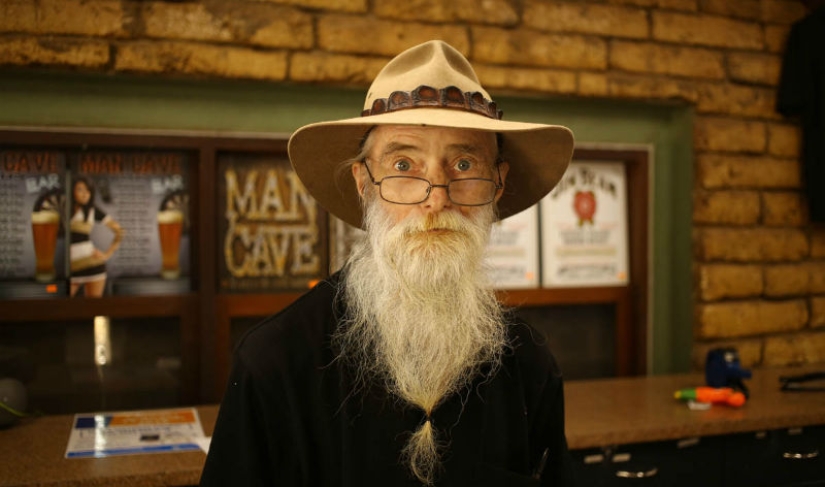
Imagine: you are an Australian 55 years old, a pension is enough for a life without frills, the children have already left. You live in your house somewhere outside the city and think about what to do. Well, then the strange begins. So much so that it could change the way of life of so many small settlements.
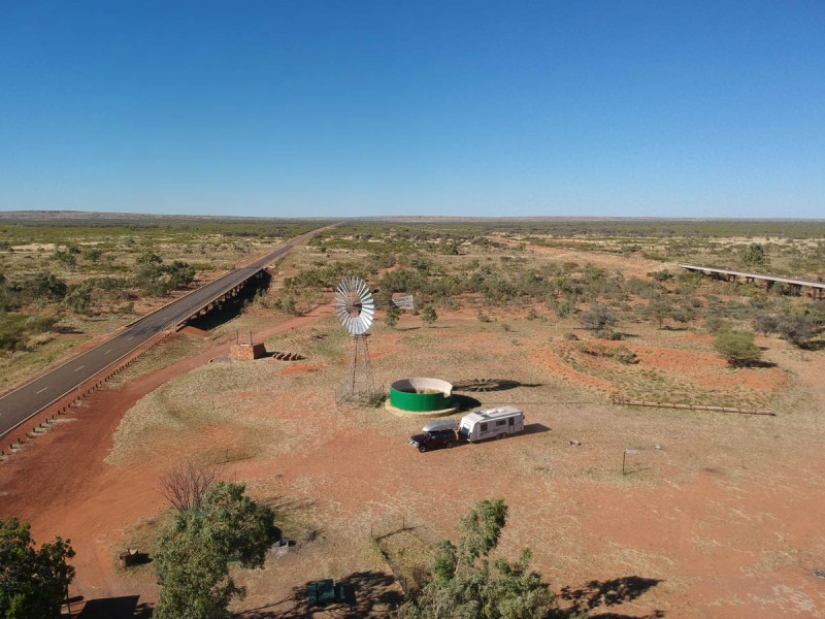
So, the house is rented out, and Australian grandparents buy themselves a mobile home. This is either a trailer for an SUV with a container house, or a van of the "land yacht" type, or even a converted bus. And going around the world in Australia is easy, because the whole continent is one country (half the size of Russia) and there is a ring road around. For a year and a half, as these wonderful people initially think. And they get stuck for 10-15 years.
In the 80s, there were no "gray wanderers" in sight. In the two thousandth they have just begun to appear, and in 2016 there are from one million to one and a half million people in Australia. An approximate estimate is based on the fact that 586 thousand mobile homes and trailers of the "mobile home" type are registered. The current growth rate is 22 thousand per year. Plus, there are those who simply put up a tent near the SUV or on a special platform on the roof of the car (since it happens in Australia, the latter is necessary for protection from snakes and insects).
On the roads of Australia, you can find a lot of vans with elderly couples: in winter — in the north of Australia, and in summer — in the south.
Where did they come from? There was a wonderful article in 2013 (it can be found on scihab according to DOI 10.1196/annals.1396.030) with a good analysis of the prerequisites and proofs in numbers. The researcher says the following:
Now let's look at the infrastructure. What do those who want to move around Australia relatively safely need? Firstly— good roads. Let me remind you, everything is simple for them: if an accident happens where there is no marking or there is damage to the road, it is the fault of road workers almost regardless of the circumstances. Secondly, gas stations. They are everywhere, and they are often city-forming enterprises. Why — a little later. Thirdly, a safe place, water, toilets and electricity — yes, people usually have everything with them, but it's still nice to get where everything is equipped for parking. There are such parking lots approximately every 50 kilometers. Even outside of brown lands (these are uninhabited suburbs), from Nowhere Lands to the Red Center (where there is almost no infrastructure) there are autonomous shelters — a solar panel, a submersible toilet, a rainwater collection tank with a warning that it should be boiled, a satellite phone to call a ranger or a flying doctor (yes, you can save from anywhere in Australia).
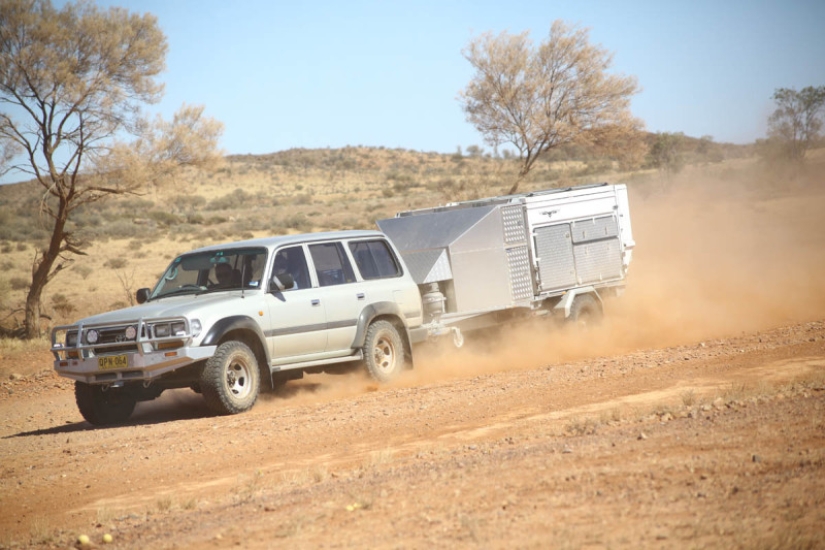
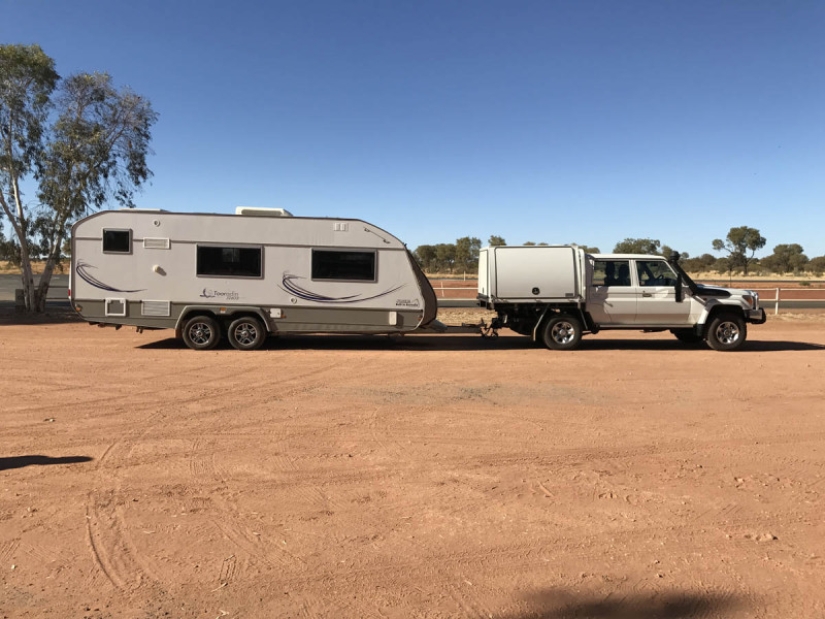
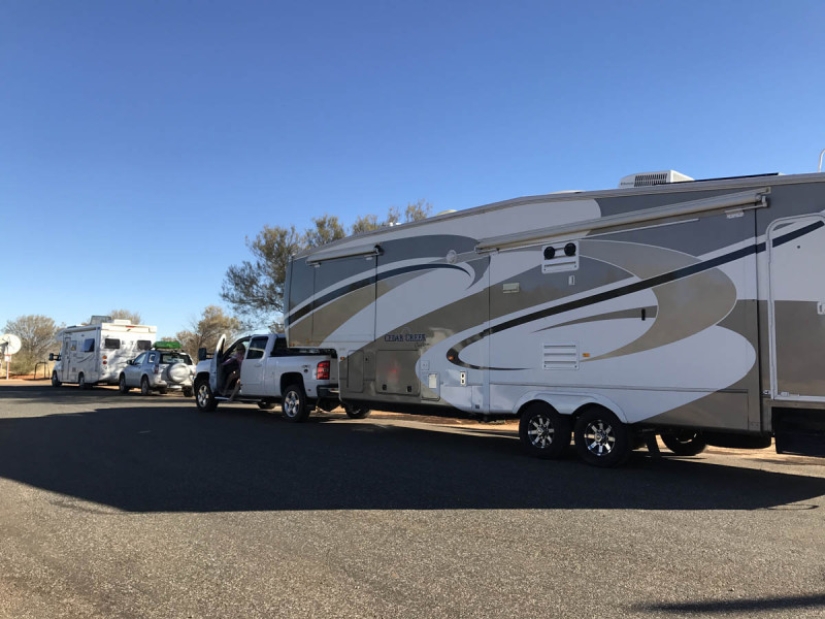


In places that are interesting to travelers, there are usually more of all sorts of nishtyaks: for example, they are very fond of the external electrical network. Yes, they don't have a lot of money. They save money, and therefore do not stay in hotels. Not everyone is rich, but in total they provide 40% of the load of all "caravan parks" in Australia (where young people go, including on holidays and weekends). Travelers by car spend $8.6 billion a year on parking fees alone: 10% falls on foreigners, 50% — on "fast travelers" and truckers, 40% — on our heroes. And another 40% of wealth in Australia is concentrated in the hands of the "over 55" category. In fact, these are their houses that are rented out during travel.

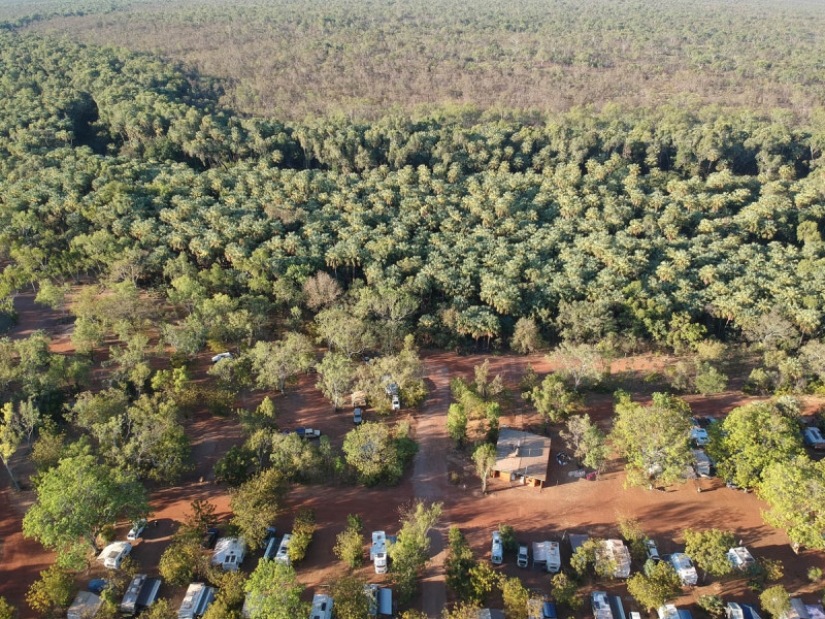
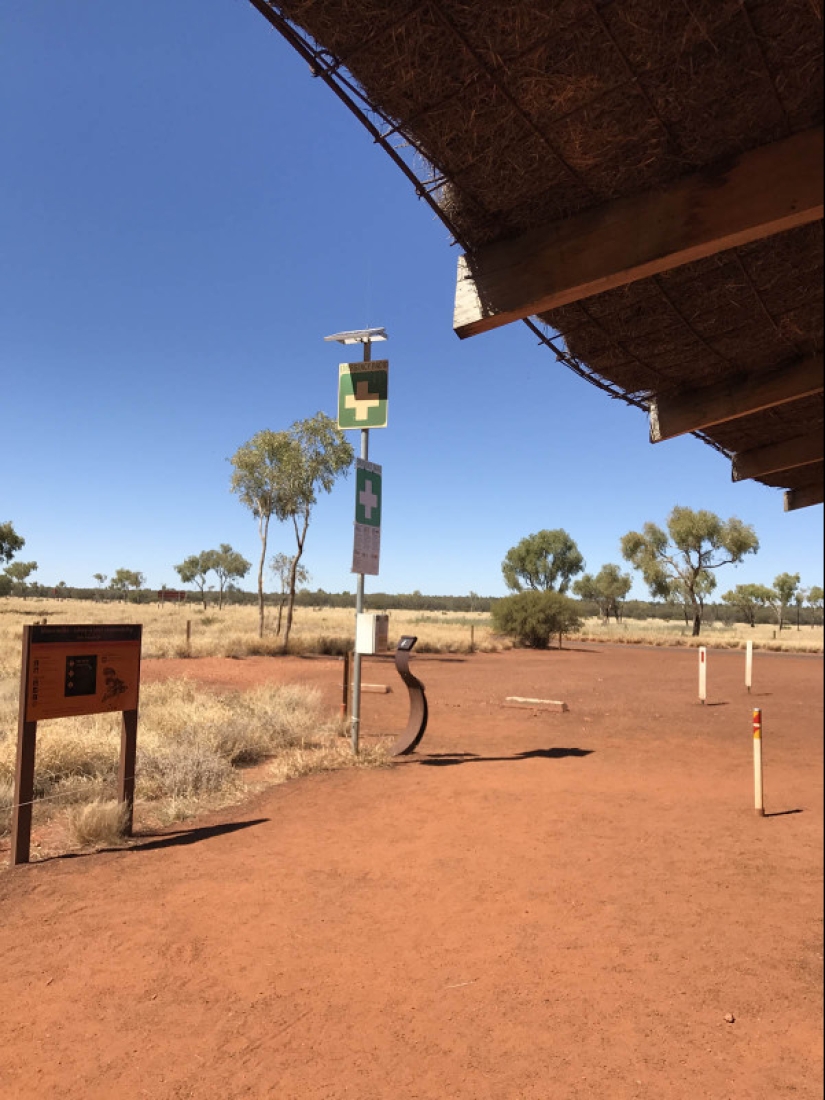

In general, they don't need much: sometimes — durable clothing, sometimes — some kind of device like a solar battery. They spend little. But they all use gas stations, they all buy food at the gas station store and they all try to come to local festivals and other events. Because they are interested. There are really a lot of them, and when they gather somewhere, it's a big plus for the city's economy.


This generates a secondary wave — people start trying to make every place in Australia interesting. It's a whole industry, almost like in South Africa. But there is a culture of "adventure for tourists" — starting from the fact that you are given a T-shirt in the shooting gallery "I was in South Africa and shot at Blacks with an AK-47" (the height of political correctness, but the targets there are really black) and ending with a special route through the caves, in the middle of which you will save a dummy that has fallen into a crack, and at the end you will get out of the skinner is covered in clay. In Australia, everything is aimed at the locals, and in many ways — at the wanderers. Many festivals are held here. Gas stations become city-forming enterprises: if there is something there besides a grocery store, a cell tower and gasoline, then travelers will not be lazy to spend a couple of days to stop by and see. Therefore, every city finds something to be proud of. While we were walking along the Stewart Highway, I came across this:







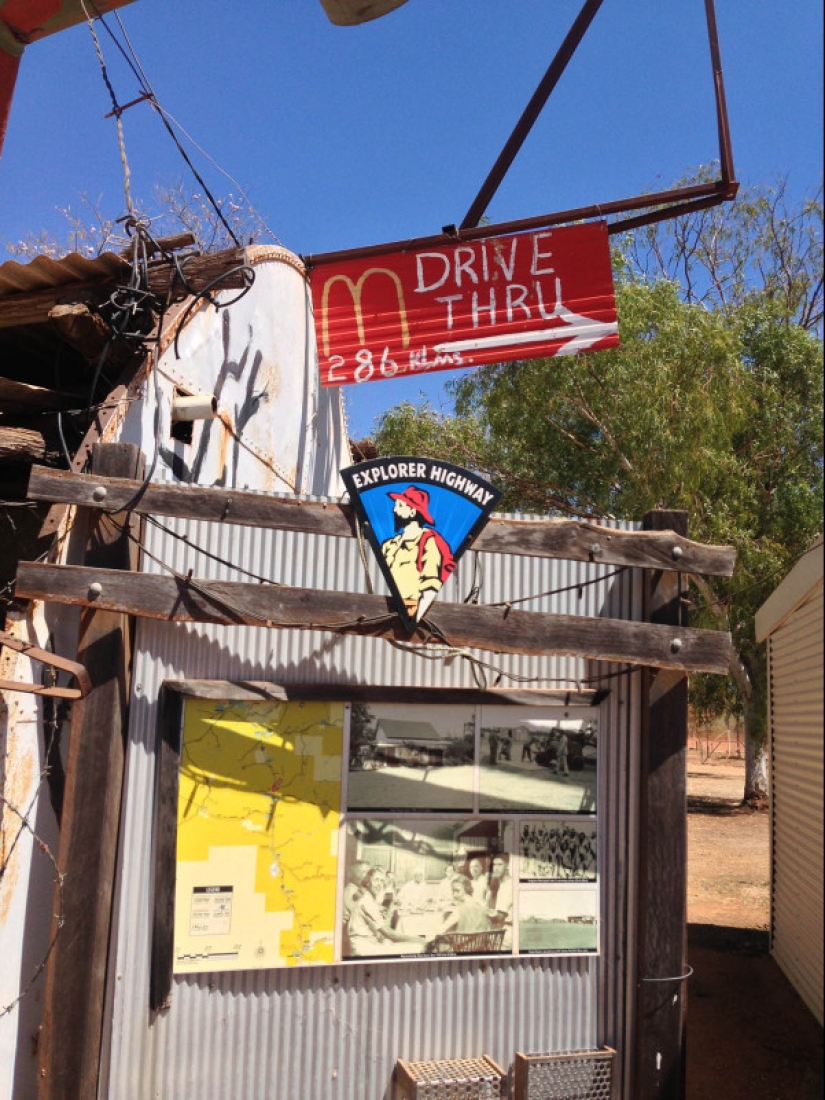
Yes, I will clarify. Wanderers do not like tourist places, they try to get away and find something rare and unusual. They are very well coordinated in terms of information exchange, and bikes play the same role for them as they did decades earlier, before the development of the big Internet. The more valuable you say, the higher your rating in the community.
They have a huge friendly website thegreynomads.com.au . There is everything there to become a gray—haired wanderer: instructions, etiquette, news (for example, they found out that AU mail is registered as an airline - and they are waiting for drones in cars), the current state of roads, descriptions of campsites, equipment sales, a schedule of all sorts of events in the country and places where wanderers need work. And a huge forum. There is a large section about hobbies, about dog care, travel description, astronomy — anything for every taste.
Now the funny thing is. Work. The fact is that grandparents do not waste their skills after retirement. A Formula 1-level mechanical engineer can, of course, soak in a geothermal source for a long time, but then he will get bored. Grandma, who was a hairdresser in the most fashionable salon in Sydney, will want someone to do a cool hairstyle. Those who do not know how to do anything can participate in harvesting, look after houses and farms, and so on. But we are now interested in people with a huge life experience. For example, grandparents traveled all over Australia, drove into the wilds of the outskirts and went to buy groceries at a store near a gas station. They were warmly received there, they talked to the locals, and now grandpa is standing in the shed of an auto mechanic and looking at a tractor that broke down 10 years ago. And he's itching to fix it. And grandma wants to do another grandmother's hair, and her hands are itching too. An auto mechanic offers an internship rate — he doesn't have a budget anymore. Grandpa doesn't do it for a living, so he agrees. Six months later, there is no poorly functioning equipment within a radius of 100 kilometers, and local residents go to show off their hairstyles at all festivals. Having worked hard, the grandfather accepts the well—deserved applause and leaves with his grandmother into the sunset - another six months of travel, and they will settle somewhere again.
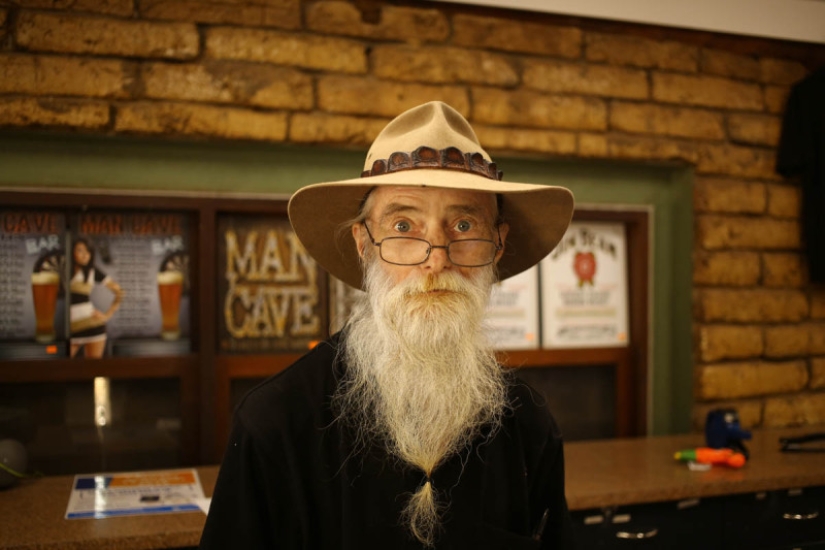
That's about how they affected Australia. More interesting places, better roads, occasional professional work, the development of field medicine. And about the same movement can be expected with us: it is only necessary to raise the average age a little.
Recent articles

It's high time to admit that this whole hipster idea has gone too far. The concept has become so popular that even restaurants have ...

There is a perception that people only use 10% of their brain potential. But the heroes of our review, apparently, found a way to ...

New Year's is a time to surprise and delight loved ones not only with gifts but also with a unique presentation of the holiday ...